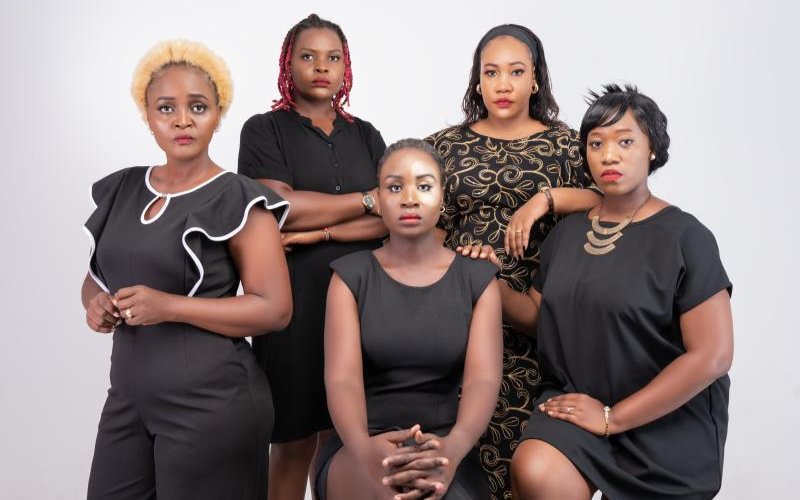Women are popularly portrayed in art as loyal to everyone in their lives.
Not the women in Dangerous Divas, a stage play that explores women’s friendships. In appearance, they are poised and prayerful women who adore the people in their lives. Within this four-woman circle, it is revealed that they are only loyal to themselves.
Scripted and produced by Stephanie Maseki, Dangerous Divas goes on stage on September 6 and 7 at the Little Theatre Club in Mombasa.
The four women—Jumla, Ria, Hani, and Anet—have been close friends since they met on campus 25 years ago. The unprecedented loss of their friend, Tieno (played by Deeja Omondi), to suicide shocks them and ultimately strengthens their bond.
A suicide note that Tieno left behind revealed the abuse she suffered in silence. The four women now openly navigate challenges side by side with unshaken loyalty and secrecy, where their friendship comes first above anything else.
“They don’t open up to anyone else but to each other,” says Stephanie.
The women own a house where they meet every week to address issues that they are facing: gender-based violence, women’s reproductive rights, infidelity, and mental health. When one of them needs help, they don’t ask questions but act swiftly.
Each woman brings something unique to the table in solving the challenges that they face.
Jumla (played by Aisha Mwajumlah) is the president’s wife who has strong links to everything the women may need. Ria (played by Vique Ofula) is a gynaecologist with a Cabinet Secretary for a husband who abuses her.
Then we have the pastor’s wife, Hani (played by Stephanie Maseki), who sees beneath her husband’s religious façade. Anet (played by Ann Owuor) is married to a successful businessman who bars her from practising her law career.
“They are powerful women who do what they want and get away with it. They have the power to get out of their marriages, but they choose revenge,” she describes.
The play goes behind closed doors and explores marriages of powerful people in society, what women go through, and what informs their choices.
“These are women we find in societies. This is a story that people will either think is unrealistic or they can see themselves in,” she says. Stephanie hopes the conversations about sense of loyalty, togetherness, and value of female friendships continue after the curtain closes.
“What I hope the audience takes away after watching the play is that the power of a woman isn’t to be underestimated. And that a woman’s heart is a deep ocean of secrets,” she says.


